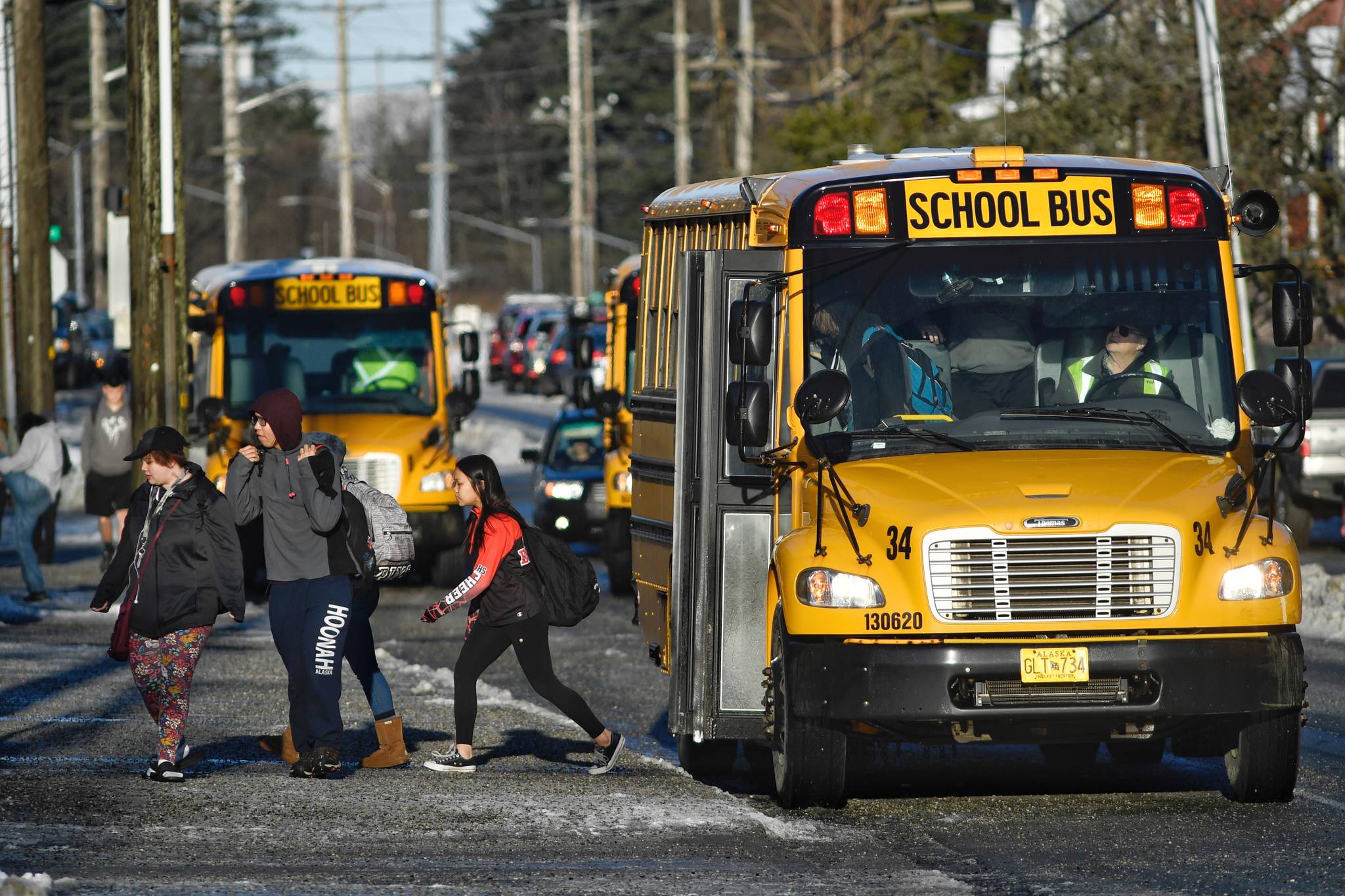CORRECTION: An earlier version of this article misquoted Jeff Short. The correct quote is: “If you are an Alaska Native student in our system, you are nearly three times as likely to be identified as ‘delayed development’ as you are if you’re a Caucasian student. If you’re an Alaska Native in our system you’re over three times more likely to be diagnosed as ‘other health impaired.’”
Short did not say that two of the 13 classifications might be too broad, and did not mention the term “learning disabilities.” What Short said was that there are 13 diagnostic categories for special education and Juneau looks like any other district in the state with respect to 11 of them. The concerns stated relate to only two categories: “Developmental Delay” and “Other Health Impairment.”
Also, Superintendent Bridget Weiss’ former position was Student Services Director, rather than Student Services Coordinator as previously indicated in the article.
As the state grapples to produce a budget, the Juneau School District is preparing to present its annual budget. But it’s being made harder by proposed funding cuts and unknown amounts of state funding.
The Juneau Board of Education, including Superintendent Bridget Weiss, finalized its budget priorities on Tuesday. These are used by the superintendent to draft the budget document, which will then be presented to the board on March 12.
Gov. Mike Dunleavy’s proposed 2020 budget calls for a reduction in education funding. Currently, the revenue statement for the JSD uses the current base student allocation (BSA) in place at $5,930 per student, rather than one following the governor’s proposed budget. The governor has proposed cutting that number to $4,880 per student, which could result in around $10 million lost for JSD in combined city and state funding.
But right now, JSD’s $70 million budget follows the current BSA law, rather than the proposed one. In Fairbanks, district officials have prepared a backup “Armageddon” budget for if the governor’s proposed changes make it into law.
[School Board President: Juneau schools at risk of losing over 100 teachers, staff]
Even without accounting for the governor’s proposed per student funding cuts, there are still things that school officials have identified the schools need, but won’t make it into the budget.
“There isn’t one thing that each of us wouldn’t approve if our spending were unlimited, but that’s where the challenge comes in,” Weiss said to the board.
The budget priorities were mainly set by the superintendent, but the board made a few additions and amendments to it at Tuesday’s meeting.
At the top of the list of priorities are expenditures that are required, such as insurance, teacher funding through a required formula based on enrollment numbers and various other costs.
Weiss added four things to the priority list, including $132,000 for a Student Services Coordinator, $53,560 to make a part-time Montessori counselor a full-time one, $6,500 for HomeBRIDGE support over the summer and around $20,000 for support for increased high school course offerings.
In justifying the need for the Montessori counselor, Weiss said both main support staff at the school only work part time. She said bringing this counselor full time would provide integral support with a small fiscal impact.
Regarding the money for support for the home school program HomeBRIDGE, her concern was that if students start seeking other home schooling options with summer support, their enrollment for the district would drop, and the district would receive even less funding from the state.
She said the $20,000 for increased high school course offerings was just an estimate, but she is encouraging teachers to think outside of the box when it comes to course offerings.
“There is a desire and priority to have a wider variety of offerings and more advanced level offerings and increase collaboration between high schools,” Weiss said. “We already do that some, and we know that there is some fiscal impact,” she said, adding that there might need to be technological support or some additional busing to allow students from both high schools to participate in classes.
[Middle school team wins Battle of the Books state championship]
School Board member Jeff Short said at the meeting that JSD spends more on special education than any other district in the state, and that he believes it is due to incorrect classification.
“If you are an Alaska Native student in our system, you are nearly three times as likely to be identified as ‘delayed development’ as you are if you’re a Caucasian student,” Short said. “If you’re an Alaska Native in our system, you’re over three times more likely to be diagnosed as ‘other health impaired.’”
He said these inappropriate identifications cost the district about $2 million per year, and he supported adding the Student Services Coordinator position so that students could be classified more accurately.
Board members also added a priority to spend money for adding 4.5 full-time teachers and $30,000 to lease the University of Alaska Southeast auto shop.
The budget would draw $551,637, about half a million dollars, from the district’s reserve accounts. But since the Alaska Legislature has not clarified how much, or how little, it will fund school districts around the state, the Board of Education might have to revisit the budget after the legislature passes a budget.
The final budget will be presented on March 12, at 6 p.m. at Thunder Mountain High School. The annual meeting with the Board of Education and City and Borough of Juneau Assembly will be on March 14 at 5:30 p.m.
• Contact reporter Mollie Barnes at mbarnes@juneauempire.com or 523-2228.

